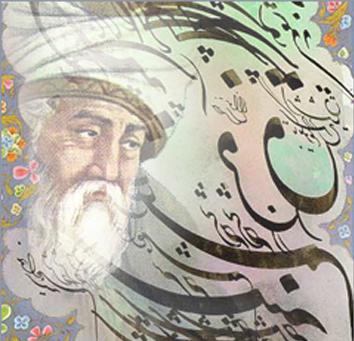Sufi philosophy is a special trend in Islam, which is characterized by mysticism, asceticism and asceticism. The etymology of the concept of “Sufism” is unclear: some scholars consider it to come from the word “wool” (from which the ascetic shirt is sewn), while others see the word “bench” (on which the Sufis sat). Also, the origin of the concept of “Sufism” could be influenced by the meaning of the root “Sufi” - pure.
The origin of the doctrine
The first Sufi ascetics appeared in the VIII-IX centuries. n e., shortly after the emergence and spread of Islam. However, according to many researchers, the first shoots of Sufi teachings originated in the era of antiquity. Sufism absorbed the spiritual elements of many ancient religions and beliefs, but strict monotheism was and remains its basis.
The Great Sheikh
The most famous and significant Sufi philosopher is Muhiyi ad-Din Ibn 'Arabi, who was called the Great Sheikh for his wisdom. His influence was great both on contemporaries and on thinkers of subsequent generations, even on representatives of other philosophical movements. It is believed that Ibn 'Arabi wrote more than 100 literary and philosophical works. Among them are “Meccan Revelations”, called the Encyclopedia of Sufism and containing answers to many questions, as well as the philosophical treatise “Gems of Wisdom” and poetry in the collection “Statement of Passion”.
Key questions: unity of opposites
Sufi teaching raises many questions: how can God be understood as the only and at the same time generating all the variety of phenomena of the world; what place a person occupies in the world, and how his actions relate to God's will; what are the real possibilities and boundaries of human cognition and action.

Sufism refers to the unity of opposites: the temporal is inseparable from the eternal, the other from the same, the earthly from the divine. And the meaning of this thesis concerns not only philosophy. It continues beyond its borders, raising questions from the field of ethics, morality, morality and belief. At the same time, a commitment to the Islamic tradition remains: it is this religion in Sufism that is considered the highest and most perfect of all the teachings bestowed on mankind. In addition, the connection of Sufism with Islamic traditional ideas is manifested in the fact that Sufis deny the sinfulness of the flesh as such (but not the sinfulness of excesses) and express rejection of the Christian traditions of monasticism. Sufis say: joy cannot be separately in the spiritual or separately in the material; joy is in their union when both those and other human needs are satisfied .
Key questions: man - divine embodiment
In its classic form, Sufi philosophy proclaims the dual unity of the world order, that is, the inextricable connection of Truth and Creation, God and the world. Another important provision of Sufi ethics is the provision on the direct connection of action and intention. This idea is also based on the philosophy of Islam. According to the Sufi concept, the result of any action directly depends on the intention, and everyone receives exactly what he is looking for. On the other hand, the basic principle of Sufism says that no statement can be unshakable.

According to the ideas of the Sufis, man is the embodiment of God, and in each of our actions we direct God's will, and more precisely, we direct ourselves through God. In this sense, there is no wrong way, because all roads lead to God. Thus, Sufi philosophy asserts tolerance: since no knowledge in the world is anything other than knowledge of God, and no action is performed out of other motives, except aspiration for God. Thus, any religion is true. The only thing that is false is the proclamation of any religious doctrine that is exceptionally true and the simultaneous denial of the value of other religions. Sufis see the truth, in whatever form it is expressed.
Purpose of sufism
The central theme of Sufism philosophy is the freedom of the soul. The famous Sufi poet Rumi wrote: "The soul on earth is in prison, and she will remain there while she lives on earth." You can quench your thirst for freedom with spiritual exaltation, the desire to merge with God. The Sufi does not just reflect on being, he lives here and now. The followers of this teaching tried to comprehend themselves and teach others direct communication with God, for which there is no need to resort to the help of priests. It is precisely for this that the Sufis were persecuted and censured by orthodox Islamists. In part, this attitude continues to this day.
The main thing in Sufism is the upbringing of a "perfect man" who can ascend above the earthly vanity and negative manifestations of his nature. The great Sufi spiritual path is called tariq. An example of such a spiritual formation is the biography of the Prophet Muhammad.
The influence of Sufism on culture
Sufism significantly influenced the development of philosophy, ethics and aesthetics, literature and art. Sufi wisdom is reflected in the works of such oriental poets and thinkers of the late Middle Ages as Farid ad-Din al-Attar, Ibn al-Farid, Jalalad-Din ar-Rumi, Omar Khayyam, Jami, Abu Ali ibn Sina (Avicenna), Nizami Ganjavi , Ali Shir Navoi and others, who worked on the basis of the Sufi symbolism of love, longing for the Beloved (that is, God). According to the Sufis, love (mahabba) is the highest state of human soul, leading to unity between the lover and the Beloved.
Prevailing in the X-XV centuries. Sufi literature is represented mainly by poetry created in the languages of the Near and Middle East: Arabic, Farsi, Turkish, Persian, Urdu, etc. Sufi parables occupy a separate place, which are the quintessence of the wisdom of this philosophical and mystical teaching.
Themes of Parables
What is a parable? In the most general sense, this is a short instructive story, the basic moral idea of which is expressed in allegorical form.
The world discovered by Sufi parables leads to true Reality. At the same time, it is as diverse as life itself, and quite confused. Each person understands these parables in his own way, but all of them have a common goal. They are based on the comprehension of truth through love and through the rejection of one’s selfish self that obscures vision. Having comprehended this difficult art, a person can find his true divine "I".
Rumi's Poetical Parables
Some Sufi parables are written in prosaic form, others in poetic form. The latter include, for example, the work of the poet Rumi. Collected in the book “The Road of Transformations”, Sufi parables were translated from the Persian language by Dmitry Shchedrovitsky. He also gave religious and philosophical comments before each parable. The book also includes ethical and psychological comments given by Mark Hatkevich. Both comments help to better understand the essence and spiritual and moral depth of parables. The book was published in 2007 by Oklik Publishing House (Moscow).
Sufi parables about love
According to Sufi philosophy, love is the basis of the universe and the driving force in the hands of God, who is called the Beloved in this teaching. In the parables of love, the Sufi doctrine of the divine is expressed allegorically, through a system of images. For example, the well-known ancient Arab legend is used about the love of the young man Kais (nicknamed Majnun, who “fell into madness”) to the girl Leili. In the image of the latter, God is depicted, and in the image of Majnun - the soul, longing for knowledge of the image of God, spiritual perfection and comprehension of the highest Truth. According to the Sufis, paradise is not a place, but a state. One in which the heart is full of spiritual love, and the eyes see deeper than the material world. As a result, a person’s perception is nothing more than a projection of his soul, inner appearance. For this reason, the world can be transformed only through inner purification and filling with sincere love. And with it comes happiness, satisfaction, harmony and gratitude.

Examples of parables about love include Rumi's works “Love of the Majnun,” “Majnun and the Dog,” “The Story of Patience in Love,” Navoi, “On Lovers,” “Lovers,” Sanayi. These parables, written by different authors, are united by the common idea that only crazy, all-consuming love gives true insight, which reveals Truth to man in all its radiance.
Other Sufi parables
Frequent topics of parables are questions of cognition, obtaining the desired, moral choice , etc. One of the striking examples of wisdom is the Sufi parable about water. In different sources it is called "When the Water Changes", "Sage and Water" or "Water of Madness". Like any Sufi parable, it can have several interpretations and is understood differently by different people. Most are wondering if the new water did harm or good. Others ask themselves if the main character of the parable did the right thing, at first not drinking new water and escaping madness, but then, unable to endure loneliness, nevertheless joined the crowd. Another interesting look at the story of the parable may be the question: "Why did this person decide to escape from new water alone, instead of trying to find like-minded people?"

In other words, the Sufi parables do not have a single interpretation, and their meaning is revealed to a person in the process of thinking and asking himself questions. Ultimately, each person will see something of their own in the parable.
Sufi parables are a unique source of wisdom that helps a person open his mind and ask questions that did not come to him before. The philosophy of Sufism is an interesting phenomenon that over the millennia has developed from practice to theory. He is distinguished by amazing tolerance and openness to new knowledge about God. Sufism theorists called their doctrine the "religion of love."